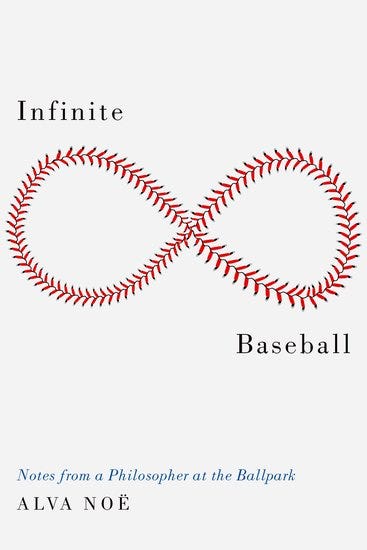What I'm Reading (No. 69): more LBJ and baseball
I spent a good chunk of March and April with Robert Caro and Lyndon Johnson. You can read up here on Caro, as well as my thoughts on the first two volumes (of four so far) in the LBJ series. I finished volume three — Master of the Senate — about a month ago and am just now organizing my thoughts.
I also read a collection of short essays about baseball — written by a philosopher. It was a fun read, and really expanded my thinking about the sport. Let's get to it.
Master of the Senate by Robert Caro

While Caro's entire four-volume series on LBJ is widely acclaimed, it's this third volume that tends to get the most attention, and for good reason. It was published in 2002, and won Caro a Pulitzer, National Book Award, and plenty more hardware. With over 1,000 pages of text (and a couple hundred more of notes) which covers a period of just over 10 years, it wasn't a quick or even easy read, but it was sure enthralling.
The best biographers will not only convey a great narrative, but also delve deeply into their subject's psyche. Caro is a master of this and posits that not only does power corrupt, as the saying goes, it also reveals. So what did the power of the Senate reveal in Lyndon Johnson? First and foremost, it showed a deep insecurity and need for power as well as admiration, but it also showed a deep drive for getting things done. Lyndon oversaw a period of productiveness, in terms of sheer legislation passed, that isn't much rivaled in the annals of Congress.
Most importantly, Johnson, a Texas southerner, pushed through the Civil Rights Act of 1957. While not actually accomplishing much in reality, it was an incredibly important symbol for the cause; it was the first Civil Rights legislation passed since Reconstruction (the period following the Civil War). Caro, in fact, wrote that LBJ was the greatest advocate for African-American citizens since Lincoln. Quite a statement.
While the first two volumes of the series were skewed very negatively towards LBJ, this volume proved more balanced and nuanced. Caro expertly showed the complexities of Johnson's motivations. Yes, he had a volcanic temper and used people like statues on a chess board, but he did also care about enacting real change for underserved people.
If the whole series is too intimidating a task (which I totally get), this is one that can be read on its own. It offers plenty of recap material from volumes one and two, and while you won't get the whole picture, you'll get the most salient pieces.
I'm not sure I need to really state it this clearly, but Master of the Senate is a monumental achievement.
I'm taking a short break before getting into volume four, but you'll definitely all be hearing about it once I do read it.
Infinite Baseball by Alva Noe

Baseball occupies a unique place in American sports. It's one of the few that's truly an American creation; it is quintessentially linked to the nation's heritage. And our summers.
As Noe points out, there's far more writing about baseball — memoirs (even by the likes of Doris Kearns Goodwin), novels, scholarship, etc. — than most other professional athletic endeavors combined. Why is that? Noe argues that it's because baseball is so much more human than other sports. It's a battle of wills between individuals — pitcher and batter, most often — in which heroes and goats are instantly made, usually in the same moment.
This is a short collection of short essays. At times, it gets a bit too philosophical for my tastes. But in general, Noe shares some ideas about the game that generally made me go, "Huh, I've never thought of it that way." He argues that Tommy John surgery and steroids are basically the same thing. He writes that baseball's boring nature is part of what makes it so enjoyable and even vital in our fast-paced world. He muses on the beauty of keeping score by hand.
If you enjoy America's pastime, Infinite Baseball is a very fun little book, even if it delves just a little too much into heady philosophy at a couple points.
That's all for me this week. I'd love to know what you're reading, and thanks as always for your time and inbox space.
-Jeremy
P.S. If you enjoy this newsletter, I'd sure appreciate you forwarding it to a friend. Here's the link to subscribe.
